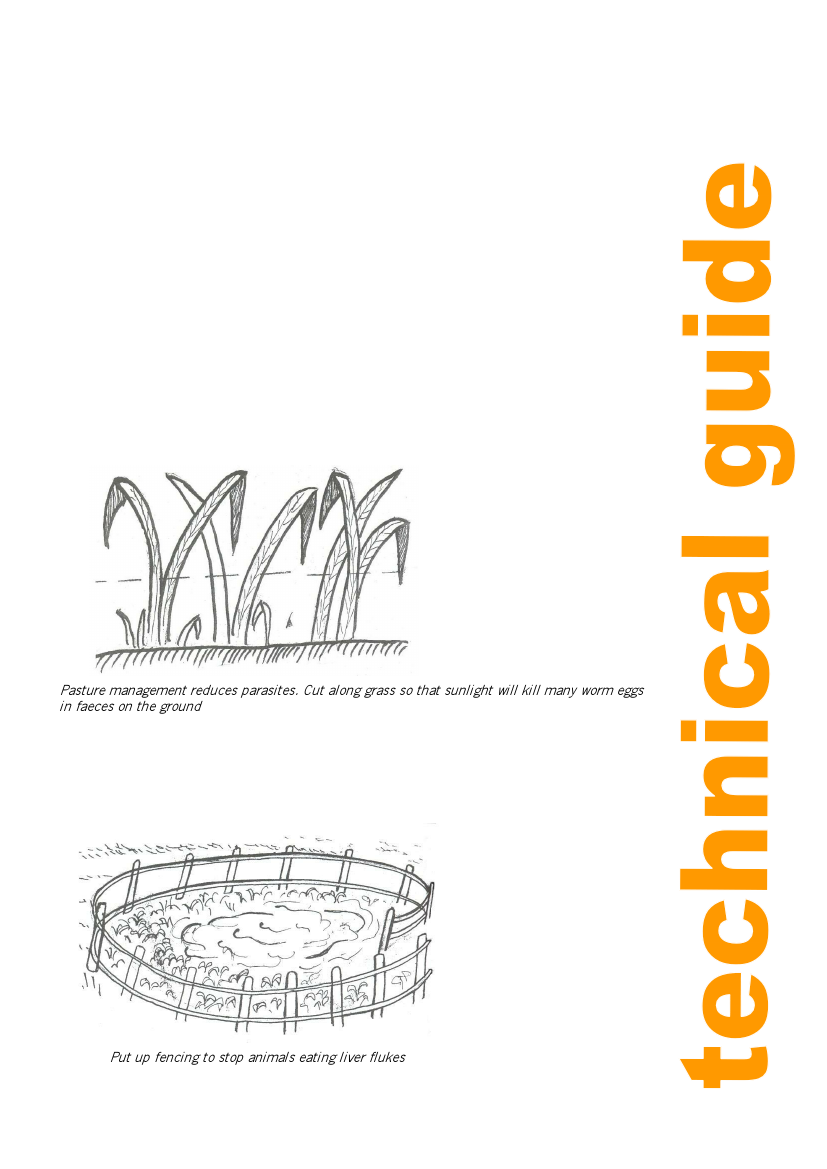
Beef cattle production and management
Practical Action
b) Feeding animals properly
Healthy, well-fed animals can fight off infections and can develop a good immunity against
worms.
c) Good pasture management to reduce build up of parasites
Good pasture management involves the following:
Avoid over-stocking as it causes the pasture to have large numbers of worm larvae on it if
the animals grazing on it are suffering from worm infestations. When other animals graze
on the same pasture they easily get infected.
Practice rotational grazing as it allows the pasture to rest and most of the worm larvae
die before they infect other cattle.
Grazing different kinds of animals together on the same pasture. Worms are known to
be species specific. For example, donkeys cannot be infected by worms that infect
cattle. So when donkeys graze on the same pasture with cattle, the donkeys eat worm
eggs and larvae that infect cattle without them becoming sick. In other words, the
donkeys cleanse the pasture of worm eggs and larvae that could have otherwise have
infected cattle. The opposite is also true.
Graze different age groups of animals on different pastures. Young animals are more
likely to get infection from older animals and are affected more severely than older
animals.
Pasture management reduces parasites. Cut along grass so that sunlight will kill many worm eggs
in faeces on the ground
For liver flukes
Fence off swampy areas to keep cattle away
Use water from boreholes, wells or from fast movi ng rivers
Some farmers keep ducks. These ducks eat snails which are the intermediate host
of the immature liver flukes.
Put up fencing to stop animals eating liver flukes
35